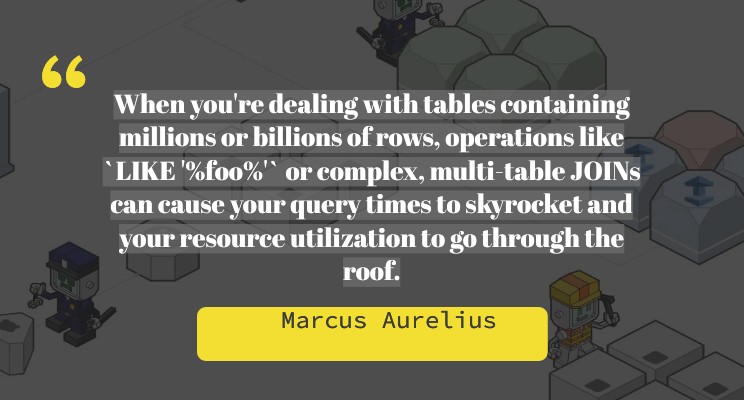🚀 Alright, devs, listen up! It's time for some real talk about how your code can impact your AWS costs.

I know you're under pressure to ship features quickly and keep the business happy, but if you're not careful, you could be inadvertently driving up your cloud expenses with every commit.
One of the biggest culprits?
Inefficient database queries.
We've all been there - you need to retrieve some data, so you whip up a quick query using a convenient wildcard search or a liberal sprinkling of JOINs.
But here's the thing - as your dataset grows, those "convenient" queries can quickly become performance and cost nightmares.
When you're dealing with tables containing millions or billions of rows, operations like "LIKE '%foo%'" or complex, multi-table JOINs can cause your query times to skyrocket and your resource utilization to go through the roof.
And the more resources your queries consume, the more you'll end up paying in AWS fees.
So, what's a cost-conscious developer to do?
The key is to be proactive about query optimization and to treat database efficiency as a first-class concern.
That means taking the time to properly model your data, define appropriate indexes, and craft targeted, selective queries that minimize the amount of work the database has to do.
It also means being disciplined about avoiding expensive antipatterns and regularly profiling your queries to identify potential bottlenecks before they become budget-busters.
Of course, this is often easier said than done, especially when you're working with legacy codebases or complex data models.
If you need to make a case to management for investing in database optimization, don't be afraid to lean on cold, hard data - a few well-chosen metrics demonstrating the cost savings and performance improvements you've achieved can go a long way.
So, fellow developers, I want to hear from you - what are your go-to techniques for writing cost-effective, efficient database queries?
What tools or processes have you found most helpful for identifying and fixing performance issues?
Share your wisdom in the comments, and let's help each other build better, faster, cheaper applications!